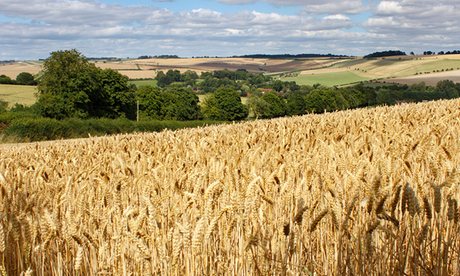
There are concerns amongst some farmers, that in an attempt to ‘rush through’ an agreement, much of the current EU legislation would be ‘copied and pasted’, into UK law. If this happens this opportunity to reduce red tape and bureaucracy will be lost.
The other concern is that the Secretary of State Andrea Leadsom is being over influenced by the environmental lobby, a powerful force compared to the farming community. This is dangerous and could jeopardise food and farming, our largest industry.
During the Referendum Britain’s biggest environmental charities were accused of using public donations to campaign for staying in the EU. Having been thwarted by the result, they are now lobbying ministers unrelentingly. Their aim is to ‘control’ the distribution of future financial support for the rural community.
As Guy Smith said, it is important to maintain a focus on food production, rather than placing too much emphasis on agri-environmental schemes. He is quite right to do so, as farmers care for the environment with or without subsidies.
It is what we do, it is called ‘farming’. We grow crops and graze livestock. We trim our hedges, annually if we want them to flourish and produce berries for wintering birds, and protect wildlife. We clear ditches and trim the verges, which is more than can be said for many councils.
It is wrong for charities to insist that Britain being a member of the EU is vital to protecting our wildlife. Even suggesting that those who backed Brexit want to make the countryside “the dirty man of Europe”. How dare they.
As was noted at a recent meeting of local farmers, NFU representatives and Maria Caulfield MP for Lewes, farmers feel they do not have a ‘voice’ which is heard by the public, or even the secretary of state. The public, through no fault of their own, are mostly ill-informed about the huge debt which is owed to the farming community.
The decline in numbers of ground nesting birds has little to do with farming, but a great deal to do with people walking their dogs, off the lead and out of control. Not only are sheep and new born lambs in danger, but so is the wildlife.
The public walk our fields, and marvel at the beauty of the landscape, but few recognise or are aware it was created, and continues to be maintained by farmers. We produce over 50% of food consumed in the UK, but this figure is steadily falling as we rely increasingly upon imports, including dairy produce, meat, vegetables and fruit. Britain has the third-highest animal welfare standards in the world – behind only Switzerland and Finland.
These messages need to be repeated regularly until the public recognises that farmers are the custodians of the countryside, and now is the time to promote British produce with more vigour.
I was going to have a moan about the roadside rubbish and make a point that it is particularly bad in West Sussex. However, as I travelled to Hailsham last week I noticed it is just as bad in East Sussex.
On Monday our lane was in a terrible state, littered with Coke cans, McDonald packaging, plastic bags and other equally disgusting flotsam and jetsam, obviously thrown out of car windows over the weekend.
I can pick up the rubbish in our lane, but who is going to do the rest?
Someone recently told me that the roadside rubbish was the fault of the dustmen and overflowing rubbish carts. Well it may be in some counties, but that is definitely not the case in Janes Lane. Our helpful and very responsible East Sussex dustmen, would never allow that to happen. As for the West Sussex lot who have a reputation for being far from helpful, I shall reserve my judgement!

 RSS Feed
RSS Feed